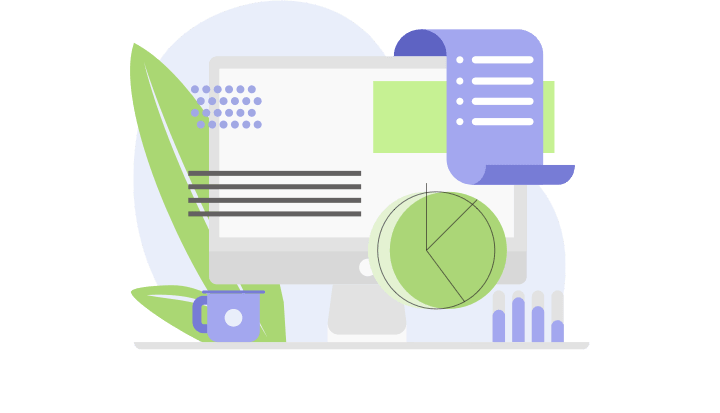
Small businesses benefit from fewer errors and streamlined processes. Machine learning ensures that data entry is both faster and more reliable. Automated accounting software, powered by AI, can handle tasks such as data entry, invoice processing, and reconciliations.

Tipalti Finance AI Software
This analysis helps identify areas for cost savings and revenue growth. They use predictive analytics to forecast future financial scenarios, aiding strategic planning. Selecting the right bookkeeping software is a critical decision for any business. A well-chosen platform can streamline financial management and enhance productivity.

Fully Automated Bookkeeping
Businesses, public accounting firms, nonprofits, and governmental entities, including U.S. government departments like GSA, are using accounting AI. Notably, AI technology is becoming embedded in the software that they use. Some are using ChatGPT 4 and other AI tools directly to accomplish specific tasks. For example, the ClickUp Accounting Template is designed to help manage your invoices, sales records, income, and predicted revenue.
- Artificial intelligence (AI) offers significant advantages in the accounting industry by automating tasks, improving accuracy, and delivering valuable insights.
- There is also a risk of AI unintentionally reinforcing biases in financial predictions, which could impact the fairness of financial reporting or auditing practices.
- For example, machine learning models can be trained to recognize anomalies in financial transactions or predict future cash flows based on past data.
- During this phase, feedback from accountants and financial teams is critical to refine the AI system and make any necessary adjustments before full-scale implementation.
- This comprehensive approach enables businesses to update their books daily, access real-time financial data, and make informed decisions based on accurate, up-to-date information.
- Training programs are essential to prepare accountants for AI-driven financial operations and maintain their relevance in the industry.
The Impact of Artificial Intelligence on Accounting and Finance
It highlights the industry’s adaptability to technological advancements. As these tools continue to online bookkeeping improve, businesses can expect even more innovations in financial management. Online bookkeeping and accounting platforms offered enhanced capabilities and accessibility. They allowed businesses to manage financial data more efficiently. The traditional methods of managing financial records are being replaced by advanced technologies. Artificial Intelligence (AI) and automation are at the forefront of this transformation.
- This technology predicts financial outcomes based on historical data.
- Alex McFarland is an AI journalist and writer exploring the latest developments in artificial intelligence.
- AI brainstorming through machine learning applications in finance is achieved through access to vast amounts of its training information and continuous improvement.
- This adds value beyond traditional bookkeeping tasks, making AI a catalyst for broader business growth.
- By harnessing the power of advanced generative AI capabilities, Docyt automates a wide range of accounting processes, including data capture, workflow management, and real-time reconciliation.
The software captures and categorizes financial transactions automatically. These functionalities streamline financial management significantly. The software can handle vast amounts of transactions with ease, ensuring seamless financial operations. This capability is especially vital for maintaining cash flow and liquidity. The ability to access real-time financial insights is transformative.

AI has streamlined routine accounting tasks, enabling professionals to focus on strategic activities. It automates data entry and reconciliation using machine learning algorithms, which efficiently process large transaction volumes, reduce human error, and ensure compliance with standards like GAAP and IFRS. https://www.bookstime.com/articles/net-terms For instance, AI can categorize expenses and match them with invoices, eliminating the need for manual effort. The platform’s technology leverages advanced AI algorithms and machine learning to digitize tax compliance, automating various financial processes while reducing manual effort and ensuring accuracy.

- If you’re not using AI tools for accounting tasks, you’re making things more complicated than they need to be.
- These decisions are based on comprehensive analyses of market and internal data.
- Businesses that embrace AI stand to gain significantly in terms of time, cost, and accuracy.
- Tipalti embeds ChatGPT and other AI/machine learning technologies in its software.
- The platform leverages cutting-edge optical character recognition (OCR) technology to accurately extract data from documents in various formats.
- This article focuses on artificial intelligence accounting uses and AI tools for accounting, including the best AI accounting software.
Additionally, consider any gaps in data that need to be addressed before proceeding with AI model training. Proper data preparation is the foundation for successful AI implementation, as it improves the system’s ability to make accurate predictions and automate processes. Computer vision, a type of AI, can be used to count cars in retail parking lots like Walmart to help generate revenue forecasts for financial planning models. ChatGPT capabilities can improve the formatting of forecasts to align with ai and bookkeeping your specifications. But it’s best to use AI-driven financial forecasting software for efficiency.
Starting small with targeted AI applications, such as automating data entry or enhancing fraud detection, is an effective approach. This allows businesses to experience immediate benefits and gradually scale AI adoption as they become more comfortable with the technology. One of the most significant applications of Artificial intelligence in accounting is the use of Machine Learning (ML), which enables systems to learn from historical data and make accurate predictions.